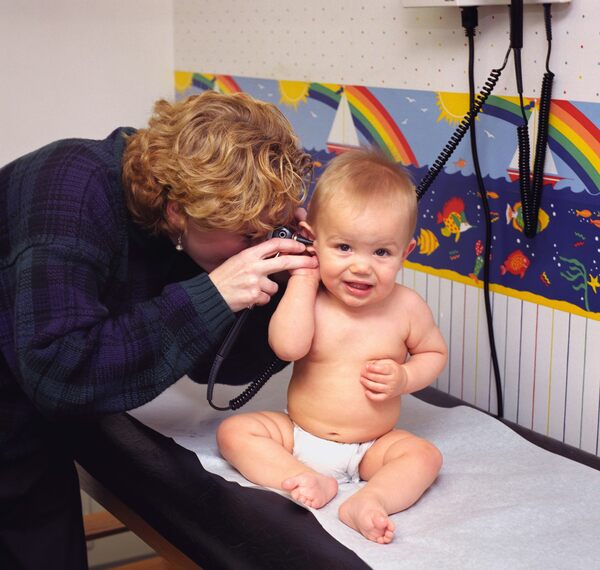Kid-Approved Ear Care: The Ultimate Guide to Keeping Little Ears in Top Shape
When it comes to the health of our family members, especially the youngest ones among us, there is nothing more important than making sure their ears are in top shape. As parents, no matter how great a job we do try to keep our kids safe and healthy, little ears can sometimes be easily forgotten about…until something goes wrong.
The good news is that ear care for your children doesn’t have to be complicated or time-consuming; with a few simple tips and tricks, you can quickly learn the best ways to make sure your kid’s ears stay nice and clean without being overly invasive! From traditional behind-the-ear models to discrete in-the-ear styles, the cost of hearing aids varies.
Through this ultimate guide on kid-approved ear care practices, you’ll find out everything you need to know when it comes to keeping those cute little lobes healthy – from prevention methods and education on infections down to different home remedies if any issues arise. So, let’s get started now – after all – your child’s safety should always come first!
Choosing the Right Hearing Aid
Choosing the right hearing aid for your child is a decision that can greatly affect their quality of life. It’s important to consider a few factors when making this decision, such as the type and severity of their hearing loss, the child’s age, and lifestyle, as well as personal preferences. A consultation with an audiologist nearby can greatly assist in finding the best hearing aid options available. There are a variety of hearing aids available that can accommodate your child’s unique needs and ensure they can communicate effectively in any setting. By taking the time to research and test different models, you can make an informed decision and provide your child with the best-fit hearing aid.
Identifying an Ear Infection
Ear infections can be extremely uncomfortable and painful. Symptoms can vary depending on the type of infection and age of the individual. However, some common signs include ear pain, fever, drainage from the ear, difficulty hearing, and irritability in children. If you or a loved one experiences any of these symptoms, it is important to seek medical help.
Ignoring the symptoms can lead to more serious complications, such as hearing loss or ruptured eardrum. Your healthcare provider can examine your ears and determine the cause of the infection. Treatment may include antibiotics or other medications to alleviate symptoms and prevent the infection from worsening. Safe remedies for earaches can reduce pain but for children it’s important to consult your doctor first. Remember, early detection and treatment are key when it comes to ear infections.
Create an Ear Care Routine for Kids
Proper hygiene is essential for maintaining good health, and ear care is a crucial part of it that we tend to overlook. Children, in particular, need to have a regular ear care routine to prevent infections or wax build-up. However, as parents, we understand that convincing your little ones to clean their ears can be challenging. So, we have put together some tips to make ear cleaning a regular part of your child’s grooming routine. By incorporating these simple practices, you can help your young ones form healthy habits that will benefit them in the long run. So, let’s dive in and make ear care easier for both you and your child!
Treating Common Ear Problems

Our ears are essential for experiencing the sounds of the world around us, but even the smallest ear problems can be a major annoyance. Fortunately, many common ear issues can be treated easily with at-home remedies. If you’re dealing with minor infections, wax build-up, or other common ear ailments, there are plenty of natural solutions that can help relieve discomfort and promote healing.
From oil drops to warm compresses, explore some of the top home remedies for treating common ear problems. With a little bit of knowledge and a few simple ingredients, you can keep your ears healthy and hearing clearly.
Best Practices for Maintaining Healthy Ears
As parents, we want our children to be healthy in all aspects of their lives, and one area that can sometimes be overlooked is the health of their ears. It’s important to establish good habits early on so that little ears stay clean and healthy. One key practice is to avoid sticking anything smaller than your elbow into your child’s ear! This can push earwax further into the ear canal, potentially causing damage or hearing loss.
Instead, gently clean the outer ear with a washcloth and avoid using cotton swabs. Additionally, be mindful of noise levels in your child’s environment as excessive noise can damage hearing. By following these best practices and establishing healthy habits, we can help keep little ears in tip-top shape!
Prepping Kids for a Professional Cleaning Visit
Whether it’s a routine check-up or for a specific concern, getting your child’s ears checked at the doctor’s office can be a nerve-racking experience for both kids and parents. As a parent, it’s important to make sure your child feels comfortable and prepared for the visit. One way to ease their worries is by explaining the process beforehand and answering any questions they may have.
Consider practicing at home by using a toy doctor’s kit to give your child a sense of what to expect. Also, be sure to bring along some distractions like a book or a favorite toy to keep them occupied during the exam. Remember, the more informed and at ease your child feels, the smoother and more successful the visit will be.
With all this information, it’s clear that there’s a lot more to ear care and health than many families realize. This is why it’s so important for parents and guardians to be informed about best practices when it comes to ear care – understanding warning signs, proper maintenance tips, professional visits, and the right hearing aid if needed. Implementing a consistent ear-cleaning routine can go a long way in helping keep your child’s hearing safe.
Ear health is something that should not be taken lightly, and you must be prepared with proper knowledge and resources. Hearing impairments can also lead to issues with speech and your child’s overall education. \ If you have any questions or concerns, don’t hesitate to reach out to a professional – they can help you determine the best course of action for keeping your little one safe and healthy. So, what are you waiting for? Get informed today so that your children can have healthy ears tomorrow!




